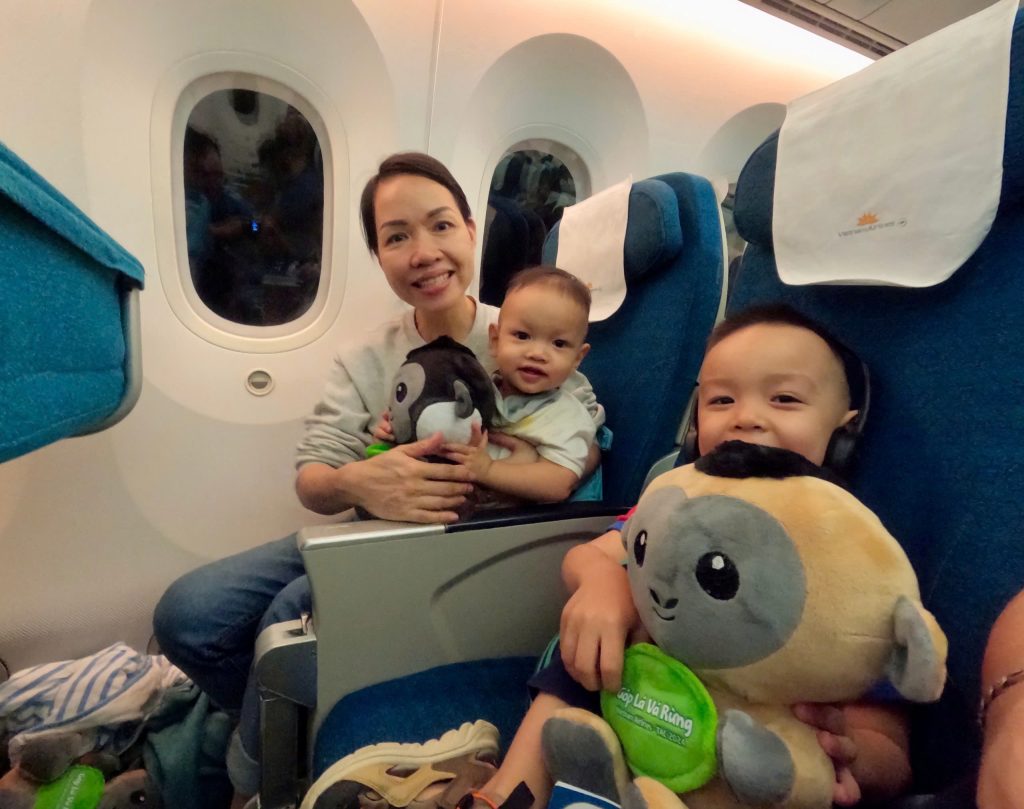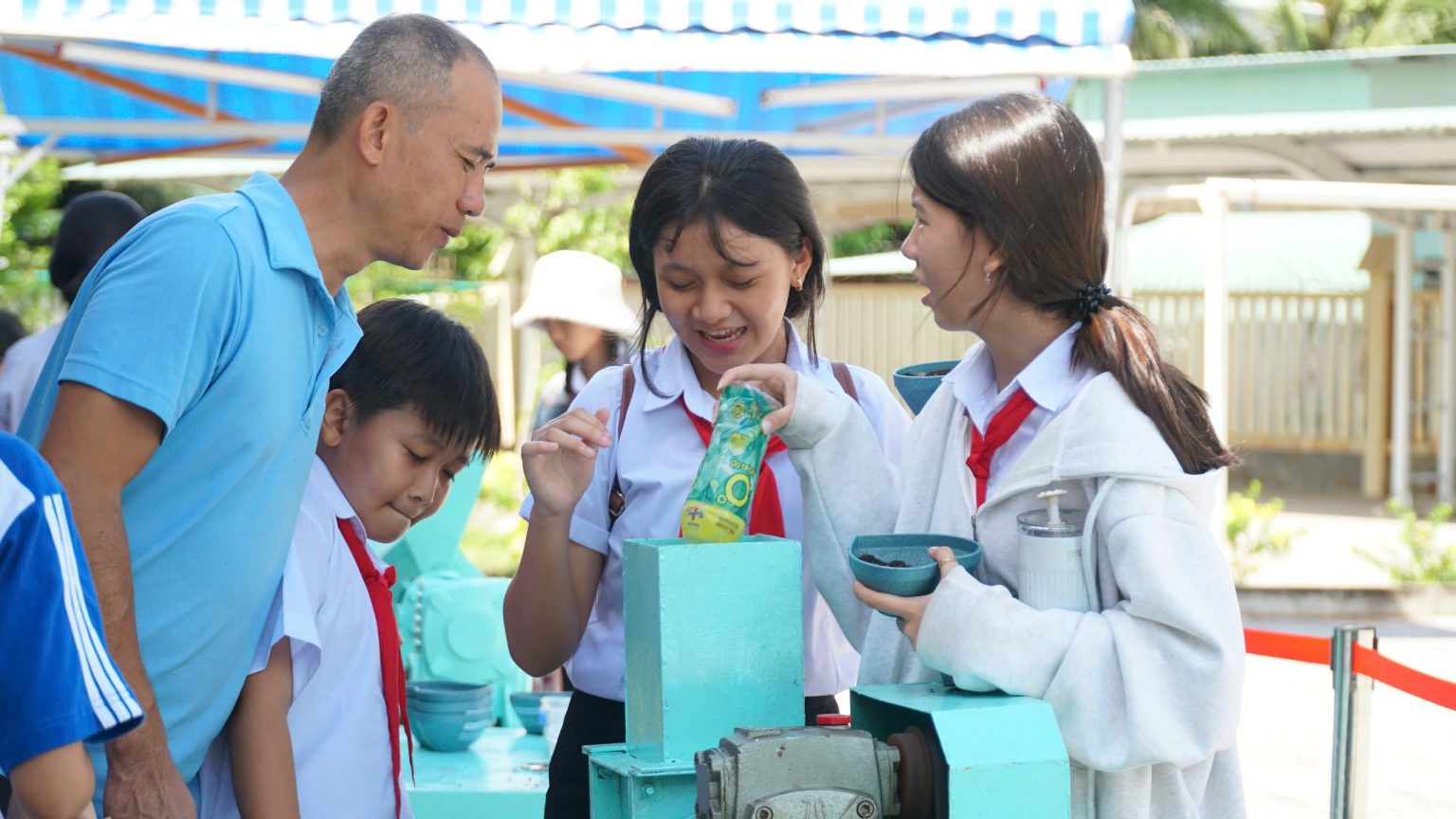Vietnam Airlines has successfully introduced a series of groundbreaking initiatives to offset CO2 emissions and reduce plastic waste. These actions mark a significant advancement in the airline’s commitment to sustainable development and align with The Aviation Challenge 2024, organised by the global airline alliance SkyTeam.
As part of its efforts, Vietnam Airlines has launched two major environmental protection campaigns: “Contributing Leaves to the Forests – For a Green and Sustainable Vietnam” and “Flying Light to Con Dao.”
The “Contributing Leaves to the Forests” campaign is a joint initiative between Vietnam Airlines, e-wallet app MoMo, and the non-profit environmental organisation Pan Nature. The campaign aims to restore 50 hectares of forest along the limestone corridor between Mai Chau District (Hoa Binh Province) and Van Ho District (Son La Province) in Northwest Vietnam. Its goals include reforestation, reducing CO2 emissions to combat climate change, and raising awareness about forest conservation among local communities. It also focuses on protecting the region’s unique biodiversity, including the critically endangered white-cheeked gibbon, of which only 14 individuals remain in the area.
Launched in early June 2024, the campaign has received over 62,000 donations from customers, resulting in the restoration of more than 53 hectares of forest, equivalent to 35,000 trees—surpassing the original targets of 50 hectares and 30,000 trees.
From September to October 2024, the airline also introduced the “Flying Light to Con Dao” campaign, aimed at reducing CO2 emissions, recycling plastic waste, and promoting sustainable aviation and tourism on Con Dao Island.
Con Dao, an archipelago in Ba Ria – Vung Tau Province, is famed for its pristine beaches, clear waters, and diverse ecosystems. Besides its natural beauty, Con Dao is of historical importance due to its links to Vietnam’s revolutionary struggle for independence. However, rapid tourism growth in recent years has strained the island’s waste management system, especially concerning plastic waste. Furthermore, climate change has had a detrimental effect on environmental quality, threatening the island’s unique ecosystems.
Through the “Flying Light to Con Dao” campaign, Vietnam Airlines, in partnership with local authorities, businesses, and residents, has collected tonnes of plastic waste, recycling it into useful items for the community. The campaign has also educated more than 2,000 students in Con Dao’s schools on environmental protection and the importance of reducing plastic waste. Moving forward, the initiative aims to expand plastic waste collection and recycling efforts, while broadening activities that raise environmental awareness among both tourists and locals.
“The concept of ‘Flying Light’ within this campaign redefines sustainable flying for Vietnam Airlines. It encourages passengers to minimise luggage weight and reduce plastic waste, thereby ‘lightening’ the overall weight of flights, lowering CO2 emissions, and decreasing plastic pollution in the environment,” said a representative from Vietnam Airlines.
In September, Vietnam Airlines operated a flight as part of SkyTeam’s The Aviation Challenge 2024. The flight, coded VN11, departed from Ho Chi Minh City to Paris on 16th September.
On this special flight, Vietnam Airlines carried out various activities to promote environmental protection and raise awareness among passengers. Passengers were given a plush toy of the endangered white-cheeked gibbon (Nomascus leucogenys), one of the world’s most threatened primates. This initiative ties into the “Contribute Leaves to the Forests – For a Green and Sustainable Vietnam” campaign. The plush toys are produced by a social enterprise that supports individuals with disabilities, providing them with livelihoods while spreading a humanitarian message.

Flight VN11 also supported the idea of “light flying,” encouraging passengers to bring less luggage on the route. By carrying fewer items, passengers helped reduce the aircraft’s overall weight, which in turn can decrease fuel consumption and lower CO2 emissions.
Additionally, Vietnam Airlines has worked with the United States Soybean Export Council (USSEC) to develop healthier and more sustainable meal trays. These meals feature improved vegetables and plant-based ingredients, prepared using nutritious cooking methods. Importantly, the fish and seafood served on board meet ASC standards, an internationally recognised certification for responsibly farmed seafood, ensuring reduced negative impacts on the environment, ecosystems, and local communities. This initiative is further supported by sustainably sourced U.S. soybean products.
Moreover, flight VN11 drastically reduced the use of nylon and single-use plastics, a practice that Vietnam Airlines has been committed to across its network for several years. This initiative has already eliminated tens of millions of plastic items and bags annually.
To align flight VN11 with SkyTeam’s challenge, Vietnam Airlines utilised a Boeing 787-9, equipped with next-generation engines that significantly reduce emissions and noise pollution. The airline also optimised the flight path to Europe, shortening travel times, reducing fuel consumption, and minimising environmental impact. Such strategies—operating a modern fleet and optimising flight paths—are key to Vietnam Airlines’ dedication to sustainable development. The airline has reported a reduction of 75,000 tonnes of CO2 emissions in the first nine months of 2024 through various fuel-saving measures.
A representative from Vietnam Airlines stated: “As Vietnam’s flag carrier, we have always prioritised our social and environmental responsibilities, including our commitment to supporting Vietnam’s ambitious goal of achieving net-zero emissions by 2050. We are proud to be an active and responsible member of the SkyTeam global airline alliance.”
“The Aviation Challenge” (TAC) is an initiative launched by SkyTeam, aimed at fostering sustainable innovation within the aviation sector. TAC 2024’s theme is “Adoption,” encouraging airlines to implement more sustainable solutions across all aspects of their operations—from fuel management and flight services to ground handling, cargo processing, and leveraging digital technologies to enhance resource conservation.

